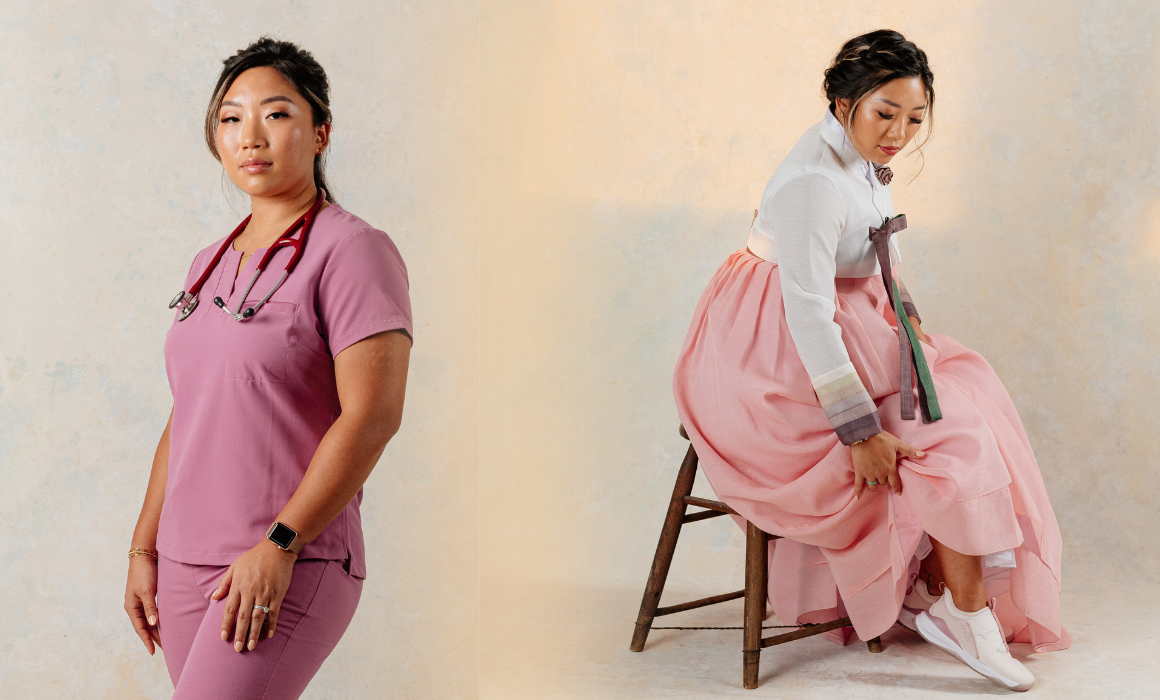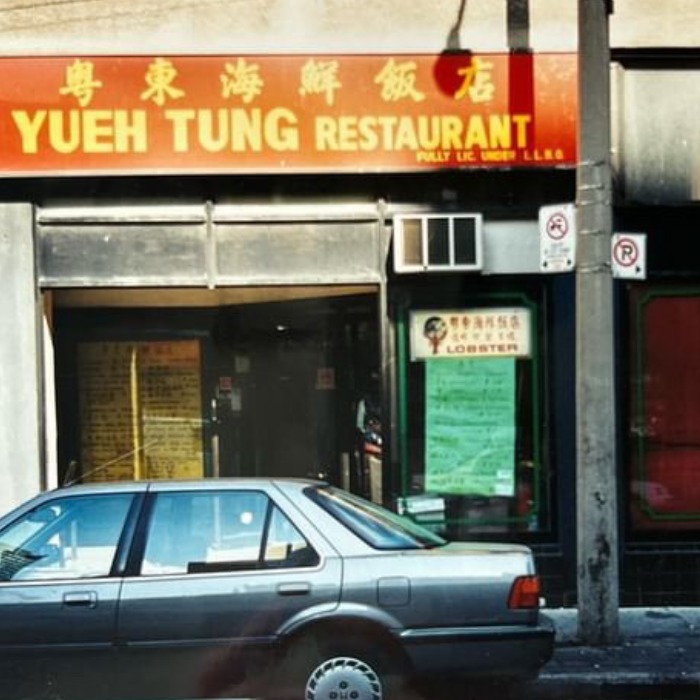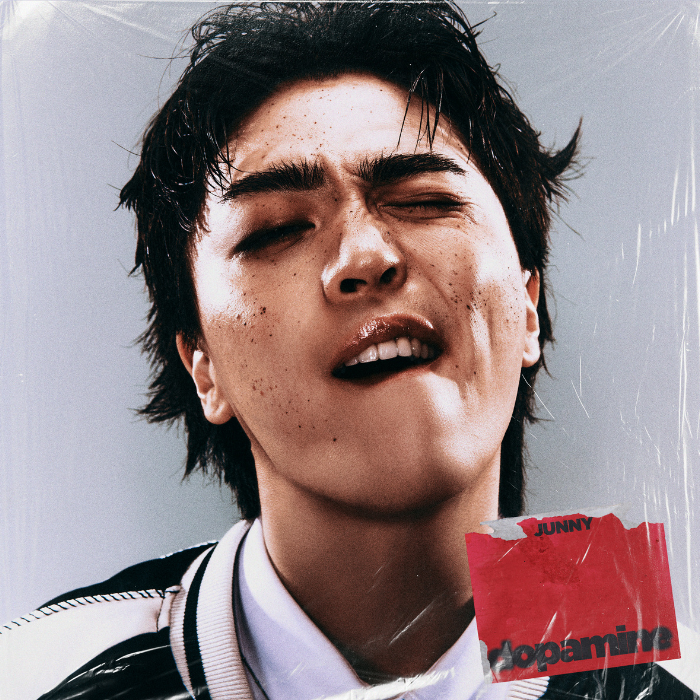Clara Jones doesn’t like the term “influencer,” but as someone who’s amassed nearly 95,000 Instagram followers in the past 10 years, being a social media personality is an undeniable part of her identity. Known as Nurse Clara online, the Atlanta-based nurse practitioner has used her platform to not only talk about her career, but also mental health, self-care, and social justice issues.
“I have always told my community that a platform, no matter how small or big, has [an] impact,” Jones told The RepresentASIAN Project. “I truly believe that if your story helps one person then that’s enough. It’s definitely a responsibility that I do not hold for granted. And I do see the privileges that [social media] has given me in having a voice.”
Social media helped Jones figure out her identity not just as a Korean-American, but also as an Asian woman working in health care. “Growing up as a Korean-American, [I felt] like, what is my identity? Should I be soft-spoken and not really talk much about taboo topics or should I really divulge in what I’m feeling and what I’m curious about?” she explained.
Despite feeling like she’s neither fully Korean nor fully American, Jones has always leaned into her Korean roots. Most recently, the gynecology nurse practitioner collaborated with sneaker brand Clove to release a limited-edition shoe that is specifically designed for health-care professionals and pays homage to her Korean heritage.
Launched in February, the Clara 1 embodies who Jones is, both personally and professionally. Everything from the sneakers’ cream and mauve colours to its mugunghwa (South Korea’s national flower) detail was intentional. Even the campaign’s photoshoot highlighted Jones’ complex identity as an Asian-American woman, not just her identity as a nurse.
Below, Jones speaks to The RepresentASIAN Project about the deep meaning behind her Clove sneaker collaboration, her experience facing anti-Asian racism in health care, and how her community group The Asian Care Unit is uniting AAPI health-care workers.
On how her Clove sneaker collaboration celebrates her multifaceted identity
When we started the design process, I had no idea what to do. But [Clove was] very open about it being me in a shoe. They really wanted me to pour my identity into it and my story. I was very intentional with the colours: cream and mauve. They are used to remind health-care workers of femininity and grace because the past two years have been so tough on us. So [it’s] a way to remind us that we can still be grateful for the journey, no matter how difficult, and still remember our why and our purpose.
That’s what the mugunghwa flower does for me. It’s the South Korean national flower and it resembles resilience within the South Korean people with Japanese colonialism. It’s a reminder to me that I can get through anything because my ancestors have. And what better way to pay tribute to my upbringing then to include the flower throughout the sneaker and in the logo.
Even with the campaign shoot, it was important for me to showcase my multifaceted identity because I think a lot of health-care workers struggle with making our job our entire identity. It’s very common within nurses. You [hear them] say, “Oh, I’m like this because I’m a nurse.” Or “Yeah, I’m a nurse, that’s all I do.” But we’re so much more than that. I’m very grateful that I’ve learned that early on, and I think that’s what this generation [and] the next generation is learning as well. In that way, we’re also learning to value our time and our upbringings.
On how her umma’s experience with infertility inspired her career in health care
I originally didn’t know that I wanted to be a nurse. My aunt was a nurse but growing up, I didn’t really get to see that part of her and neither of my parents were in health care. They were the classic immigrants working very odd jobs.They worked at dry cleaners and nail salons and all the jobs you can imagine. But growing up, I did witness my mother’s fertility journey. She struggled to get pregnant, had multiple miscarriages, an ectopic pregnancy [and] surgery, and so I was kind of her miracle baby.
Of course, growing up, you’re like, what does that mean? You don’t really know. But as I worked on my own self-identity and career path, that really stuck with me. I remembered all the really kind staff and professionals taking care of her and I just thought, I really want to be someone like that. Someone who’s useful, helpful and can care for people in their really vulnerable state. So that’s definitely something that I held close to me as I went through nursing and grad school. And now I’m a nurse practitioner and I see my mom in all my patients.
I have always loved reproductive health [too]. It definitely has to do with my mother’s story, [but] also with growing up as a woman in an Asian-American household. [For example,] I never got the sex talk. I started my period and my mom was like, “Oh great.” And then no more information partly [because] she didn’t know much about it either. She just knew that it’s something that women go through and no one really talks about. So that kind of empowered me.
On facing stereotypes and anti-Asian racism as a health-care provider
As an Asian-American woman in health care, I feel like there was already a stereotype that people expected me to be, or people first perceived me to be [based] on what we see in media. I think entering the field, people assumed I would be submissive, quiet, smart or play by the rules. And yeah, maybe I am a little bit of those, but I’m also a lot of other things.
I would also often get confused for the four other Asian nurses in my unit. And even worse, when we all started wearing PPE during COVID, the excuse was always the same. “Oh, sorry. You all just look so alike with the masks on.” I know [they don’t] mean to be insensitive, but it totally is. I would never say that or even think like that with another race. I used to brush it off, but once the violence in the AAPI community started to increase [during the pandemic], I felt that even more strongly because it felt personal. What was happening to the collective community just [made it feel] even more intense. I would also get asked about where I was from more than before, as if they were waiting for me to say “Wuhan, China,” where COVID started.
And [when] I was in grad school and working as a nurse as well [during the pandemic], I would go to school on the train in Atlanta. I would get the occasional stares and whispers, or sometimes the outright racist remark by a stranger like, “Ooh, Coronavirus.” It was surprising. But I did really find solace in connecting with other Asian health-care providers, both in my unit, in my friend group, and on social media. But I found that there wasn’t really one place I could go [for resources].
On why it was important to her to find a Korean-American therapist
I started therapy a couple months into the pandemic. It was not helping [my mental health] going into work and dealing with COVID, [and] a lot of personal stuff came up as well. [Therapy] has been such a life-changing experience. I know everyone says that about therapy, but my own therapist is a Korean-American woman and I was very intentional in finding one. It was a struggle at first, for sure, because I didn’t really have the resources in front of me. There are so many amazing mental health resources for Asian-Americans, but I struggled with finding one because of the cost as well. And after going through about three therapists, I found my therapist and it’s just amazing not having to explain my background or explain what certain words mean when I feel like I can’t explain them in English. I’ll say it in Korean [instead] and she knows exactly what I’m saying.
There are just so many other intricate details of growing up as a multicultural immigrant that so many don’t know or understand. And I don’t think it’s necessary for mental health providers to really understand every aspect of your upbringing, but it certainly helps. So it definitely eases my mind when I know that I don’t have to almost “teach” her or explain certain traumatic or stressful experiences in my past. So therapy has been a huge game-changer for me [in terms of self-care].
On how The Asian Care Unit is creating space for the AAPI community
The past two to three years [has] shown me that there isn’t a space just for AAPI health-care providers to come together and meet as one. I didn’t know who to turn to when I experienced that xenophobia on the train or at work. And when we witness so many people who look like us being attacked and murdered in public [and then we are] expected to also care for those same people as health-care providers, it was such a dichotomy of emotion. So this online community group really lets us share our stories, network, and find mentorship.
Typically with organizations or community groups, there’s a plan and you plan for months or years. But [The Asian Care Unit] kind of came about very sporadically and organically because, like I said, I felt like there wasn’t somewhere for me to go.
One day on Instagram Stories, I was doing a Q&A and a nursing student asked me, “Is there any resource I can go to? I’m feeling really lonely and kind of scared.” And that just kind of opened my eyes. I was like, oh my gosh, I need to do this. And of course I was in between studying for exams or writing a paper, but I [felt] like I [needed] to do this right now. So it was really just as simple as starting an Instagram page and Facebook group and asking all my Asian friends in health care to join and share their stories.
On why mentorship is one way she’s giving back to her community
I personally really clung on to mentors that I found in literally anyone, like a professor, a clinical instructor, or even a neighbour. I would really just seek wisdom from everyone I knew because growing up [as a] child of immigrants, you don’t have as many connections or even networking skills. My parents worked all the time, so I was in daycare and afterschool, and my parents didn’t have friends, so I didn’t have family friends who [were] physicians, nurses, pharmacists or whatever. I really had to be super intentional — and almost annoying — to make these connections. But there’s so much power in that because they saw how desperate I was for advice and wisdom.
I just want it to be easier for the next generation. And I didn’t want people to struggle as much in finding mentors, especially for those who don’t have as many resources or connections. [That’s why] I feel very proud that there have been mentor-mentee couplets to come out of [The Asian Care Unit]. It’s special and really empowering to see someone who looks like you in a different stage of life that you hope to see yourself in in two to three years.
I’m trying to mentor two individuals for six months at a time, [and now] it’s been about three months. When I feel a need for something, I act on it very quickly, and I just felt the need to pour into someone. I really want to share everything that I know. I have seen other health-care influencers provide mentorship, but at a cost, and that [cost] was something that was not possible for me [when I was] going through nursing school and college. I couldn’t even afford as little as $40 a month to ask questions to someone I looked up to. So I found it really important to provide that free of charge.
My mentees are both actually part of the AAPI community. One is in nursing school currently and the other is in nurse practitioner school. So I’m really just so grateful that they trust me [to] lead them through this process. It’s been really eye-opening and rewarding.
This interview has been edited for length and clarity.
Like this post? Follow The RepresentASIAN Project on Instagram, TikTok and YouTube to keep updated on the latest content.











